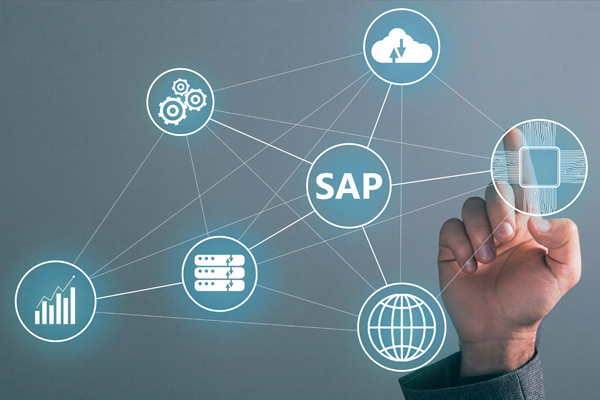How to Mastering Customer Engagement with SAP Business One CRM

Table of Contents
SAP Business One CRM In today’s competitive business environment, effective customer engagement is crucial for maintaining loyalty, driving sales, and fostering long-term relationships. SAP Business One CRM stands out as a powerful tool that enables businesses to streamline customer interactions, optimize marketing efforts, and enhance overall customer satisfaction. This comprehensive guide explores the capabilities of SAP Business One CRM, highlighting its features, benefits, and strategic advantages for businesses aiming to master customer engagement and achieve sustainable growth.

Understanding SAP Business One CRM: Unleashing Customer Relationship Management Potential
SAP Business One CRM is a robust CRM solution designed for small and medium-sized enterprises (SMEs) to manage customer relationships, sales pipelines, and marketing campaigns efficiently. Integrated within the SAP Business One ecosystem, it offers seamless integration with ERP functionalities, providing a holistic view of customer interactions and business operations.
Key Features and Functionalities of SAP Business One CRM
- Customer Management: SAP One CRM centralizes customer data, enabling businesses to maintain comprehensive customer profiles, track interactions, and monitor purchase history. This 360-degree view empowers sales teams to personalize customer communications, anticipate needs, and deliver exceptional service.
- Sales Pipeline Management: The CRM solution facilitates effective sales pipeline management by automating lead generation, opportunity tracking, and quotation management. SAP Business CRM helps sales teams prioritize leads, forecast revenues, and streamline the sales process from lead to close, enhancing efficiency and productivity.
- Marketing Campaigns and Segmentation: Businesses can design targeted marketing campaigns using SAP Business One segmentation capabilities. By segmenting customers based on demographics, behavior, or purchase history, marketing teams can create personalized campaigns, track campaign performance, and optimize marketing spend for maximum ROI.
- Customer Service and Support: The CRM platform includes tools for managing customer service requests, tickets, and resolutions. Business One CRM facilitates efficient issue tracking, escalation management, and service level agreement (SLA) monitoring, ensuring timely resolution and enhancing customer satisfaction.
- Analytics and Reporting: Built-in analytics dashboards provide real-time insights into sales performance, customer behavior trends, and marketing campaign effectiveness. Customizable reports enable stakeholders to make data-driven decisions, identify growth opportunities, and optimize business strategies.
Advantages of Adopting SAP Business One CRM for Customer Engagement
1. Enhanced Customer Relationships
By consolidating customer data and interactions in a unified platform, SAP Business One CRM enables businesses to build stronger, more personalized relationships with customers. Access to historical data and communication logs empowers sales and service teams to deliver timely, relevant, and personalized experiences.
2. Improved Sales Efficiency and Effectiveness
Automated lead management, sales forecasting, and pipeline tracking streamline sales operations and increase sales team productivity. SAP Business CRM provides sales representatives with the tools and insights needed to prioritize tasks, nurture leads, and close deals faster, thereby accelerating revenue generation.
3. Strategic Marketing Campaigns
Targeted marketing campaigns based on segmentation and customer insights drive engagement and conversion rates. SAP Business One CRM facilitates campaign execution, monitors campaign performance metrics, and facilitates continuous improvement through A/B testing and data-driven optimizations.
Implementing SAP Business One CRM: Best Practices
1. Customization and Integration
Tailor SAP One CRM to align with specific business processes and customer engagement strategies. Leverage customization options to configure workflows, fields, and dashboards according to unique business requirements. Ensure seamless integration with existing ERP systems and third-party applications for data consistency and operational efficiency.
2. User Training and Adoption
Invest in comprehensive training programs to familiarize users with SAP Business One CRM functionalities, best practices, and workflow automation. Promote user adoption through hands-on training sessions, knowledge sharing forums, and ongoing support to maximize CRM utilization and ROI.
3. Continuous Improvement and Innovation
Encourage a culture of continuous improvement by leveraging SAP Business One CRM’s analytics capabilities to monitor KPIs, identify trends, and uncover actionable insights. Regularly review customer engagement strategies, solicit feedback from users and customers, and implement iterative enhancements to optimize CRM performance.
Case Studies Demonstrating Success with SAP Business One CRM
Case Study 1: Retail Excellence
A retail chain implemented SAP Business One CRM to streamline customer loyalty programs and improve cross-selling opportunities. By analyzing customer purchase patterns and preferences, they personalized marketing campaigns, increased customer retention rates, and achieved significant revenue growth.
Case Study 2: Manufacturing Innovation
A manufacturing company integrated SAP Business One CRM with their ERP system to enhance customer service and support operations. The CRM platform facilitated proactive customer communication, reduced service response times, and strengthened customer relationships, resulting in improved customer satisfaction scores.
Challenges and Considerations in Adopting SAP Business One CRM
While SAP Business One CRM offers numerous benefits, challenges such as data migration complexity, customization costs, and user resistance should be addressed. Organizations must allocate resources effectively, collaborate closely with CRM implementation partners, and prioritize change management to overcome adoption barriers and maximize CRM effectiveness.
SAP Business One CRM
In conclusion, SAP Business One CRM emerges as a transformative solution for businesses seeking to master customer engagement, drive sales growth, and enhance operational efficiency. By leveraging its comprehensive features for customer management, sales pipeline optimization, and strategic marketing campaigns, organizations can deliver exceptional customer experiences and achieve sustainable competitive advantage. Case studies illustrate how diverse industries have successfully leveraged SAP Business One CRM to improve customer relationships, increase sales effectiveness, and achieve measurable business outcomes. As businesses prioritize customer-centric strategies, investing in a robust CRM platform like SAP Business One CRM is essential for unlocking business potential, fostering long-term customer loyalty, and driving profitability in a dynamic marketplace.






